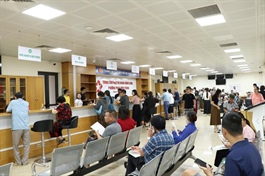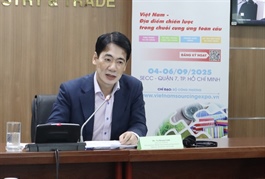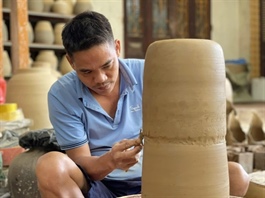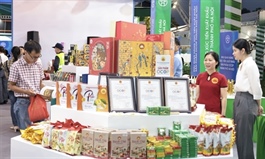Việt Nam to promote development of halal products and services
Việt Nam to promote development of halal products and services
The draft decree states that Vietnamese halal certification organisations will be supported in improving their capacity, achieving international recognition and having their certification results accepted by different countries and territories, especially in target export markets.
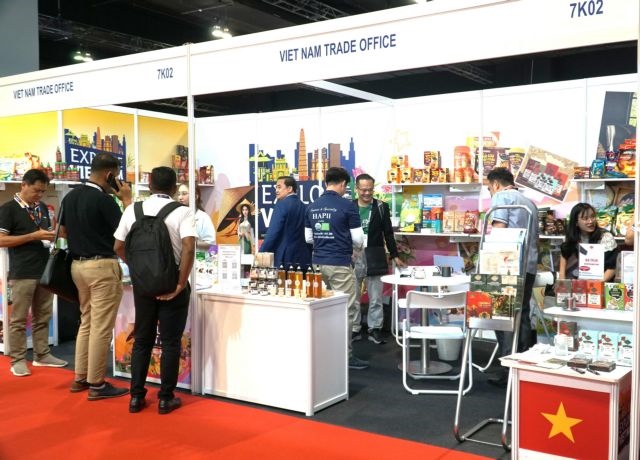
Vietnamese goods at the International Halal Exhibition 2024 held in Kuala Lumpur, Malaysia. — VNA/VNS Photo Hằng Linh |
Việt Nam will proactively negotiate and sign international agreements to facilitate and support businesses in promoting halal products and services, according to a draft decree on halal products and services quality management compiled by the Ministry of Science and Technology (MST).
Under the draft decree, halal products are those that have been declared lawful or permissible under Islamic law.
Halal services are any activities related to halal products, including transportation, storage, packaging, display and handling.
The draft decree states that Vietnamese halal certification organisations will be supported in improving their capacity, achieving international recognition and having their certification results accepted by different countries and territories, especially in target export markets.
Việt Nam will prioritise the integration, research and market development for halal products and services in the National Trade Promotion Programme and other related market development programmes, including supporting costs for businesses to attend prestigious halal trade fairs, exhibitions, forums and events abroad.
Businesses with high quality and reputable halal products and services are encouraged to join the Việt Nam National Brand Programme, while promoting national branded halal products to international markets.
Preferential credit
As for support policies for businesses, the draft decree directs credit institutions, credit guarantee funds and small and medium-sized enterprise development funds to consider giving preferential interest rates for investment projects in halal production and technology.
They should also prioritise building quality management systems that meet halal standards and costs for first-time halal certification assessment.
Partial support to build a halal assurance management system and costs for the first halal certification assessment will be inserted into several different initiatives, including Small and Medium-sized Enterprise Support Programmes, Industrial Promotion Programmes and national and local Science and Technology Development Programmes.
Việt Nam will help businesses with science and technology projects to research, apply and innovate production technology and preserve halal products.
Companies will also be supported in accessing markets and legal and technical information through the construction, maintenance and development of a State national halal database.
The database must ensure connection with the National Database on standards, measurements and quality.
The national halal database must be public, transparent and easily accessible, and it must provide complete, accurate and timely information.
In-depth tests
The draft decree also regulates support policies for certification and testing organisations.
Việt Nam will give financial incentives to investments in specialised testing equipment to serve halal requirements. Funding will come from science and technology development funds, science and technology enterprise development support programmes or specialised projects.
Authorities will also work to support the cost of initial international accreditation for laboratories and halal certification agencies with the potential and commitment to serve the industry's development.
Vietnamese halal conformity assessment organisations will gain support to participate in international networks and associations, seek opportunities for technical cooperation and promote the signing of mutual recognition agreements on testing and certification results with foreign organisations.
Business households, cooperatives and groups can connect with halal processing and exporting enterprises to form stable and controlled halal raw material supply chains.
Pilot production links and halal application certification models will be replicated for cooperatives and cooperative groups to reduce costs and improve access to certification.
The MoST is collecting feedback on the draft decree through comments on its information portal.
- 09:41 04/08/2025






